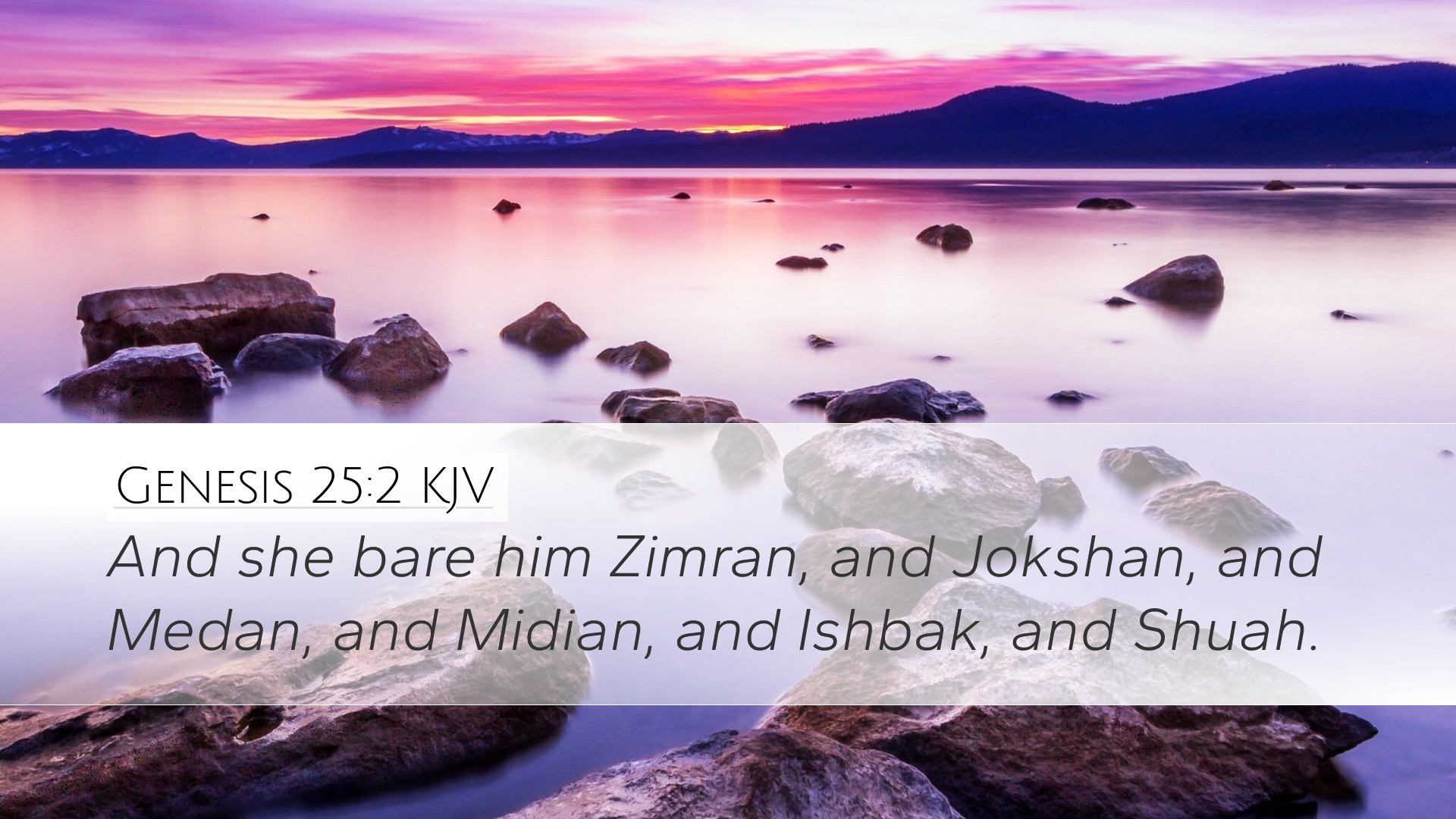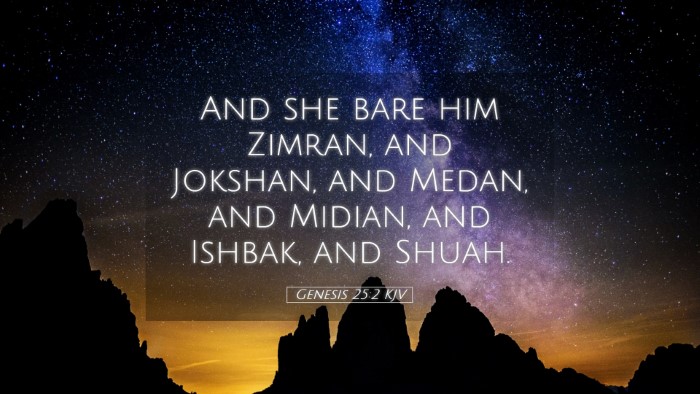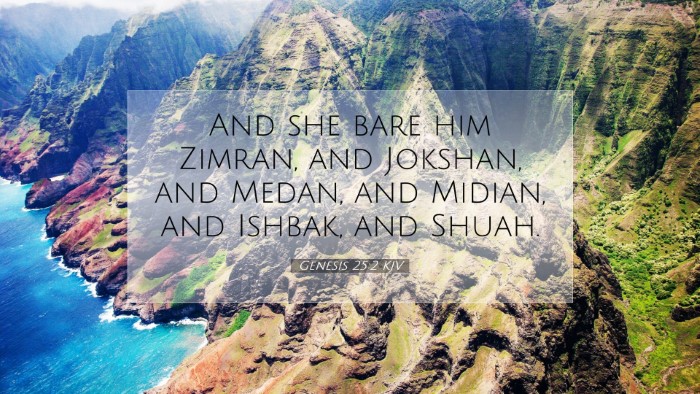Commentary on Genesis 25:2
Genesis 25:2 states: "And she bare him Zimran, and Jokshan, and Medan, and Midian, and Ishbak, and Shuah." This verse introduces the genealogy that follows Abraham's marriage to Keturah after the death of Sarah. This commentary synthesizes insights from various public domain sources to provide a deeper understanding of the significance of this verse in the biblical narrative.
Contextual Background
The chapter unfolds a pivotal transition in the life of Abraham, reflecting on his later years. After the passing of Sarah, Abraham married Keturah, and through her, he fathered several children. The mention of these children helps in illustrating God's blessings upon Abraham and underscores the theme of God's covenant promises—blessing not only those directly tied to Isaac but also through those born of Keturah.
Insights from Matthew Henry
Matthew Henry, in his exposition of Genesis, notes that the children of Keturah, though not part of the covenant line, demonstrate the overflow of God's providence in Abraham's life. He emphasizes that these offspring were a reflection of Abraham's legacy and that they were not to be dismissed as insignificant. They represent nations and tribes that would later play roles in biblical history.
Insights from Albert Barnes
Albert Barnes emphasizes the notion of inheritance and covenant. He observes that while Isaac was the chosen heir to Abraham, the listing of these names serves to remind readers that God's promises extend beyond immediate fulfillment and that Abraham was blessed with a multitude. Barnes notes that such families would later become significant in the context of Israel’s enemies—highlighting Midian, for instance, as a notable nation that interacted with Israel throughout the narrative.
Insights from Adam Clarke
Adam Clarke expands upon the names mentioned in the verse, providing etymological insights. He points out that Zimran, Jokshan, Medan, Midian, Ishbak, and Shuah represent various nations that arose from Abraham’s union with Keturah. Clarke interprets these names as not just mere identifiers but as embodiments of the diverse fulfilling of God’s promises—including interactions with other nations, as seen in the historical accounts of arrivals and conflicts. Clarke's reflections suggest that each name carries implications for understanding God’s redemptive work through multifaceted genealogies.
Significance of Each Name
Each name in Genesis 25:2 represents elements of God's plan:
- Zimran: Often linked with song or music, indicating a lineage that could produce praise.
- Jokshan: His descendants are thought to have ties to the Arabian lineage, demonstrating the widespread influence of Abraham.
- Medan: Traditionally viewed as a distant tribe—highlighting the geographical and cultural expansion of Abraham's offspring.
- Midian: Known for its interaction with Israel, marking a significant historical nation in the narrative.
- Ishbak: Sometimes associated with fancy interpretations of connection and relationships within Abraham's expanded family.
- Shuah: Often less mentioned but indicative of the hidden blessings and impacts these names represent.
Theological Implications
The theological implications are profound. This verse reaffirms the understanding of God’s promises to Abraham being multifaceted and transcending ethnic boundaries. It signifies that while the covenant was specific to Isaac, Abraham’s lineage through Keturah brings forth a narrative of inclusivity. This drives home the point that God’s redemptive purposes are universal, encompassing both the chosen and the nations beyond.
Application for Modern Believers
For pastors, students, and scholars, Genesis 25:2 offers a rich field for reflection. It encourages believers to embrace diversity within the church, recognizing that God's family includes more than just them—extending to various cultures and backgrounds. This calls for an appreciation of the broad scope of God’s redemptive history.
In conclusion, Genesis 25:2 serves as an essential reminder of God's faithfulness and the extensive nature of His blessings upon Abraham. The insights drawn from Matthew Henry, Albert Barnes, and Adam Clarke reflect a unified recognition of the complexity and richness of biblical genealogies, and highlight the importance of understanding the broader narrative of God’s covenant throughout Scripture.


